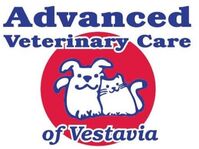Frequently Asked Questions
General FAQ Questions:
What types of pets does AVC treat?
- We primarily treat dogs and cats. Please call us if you have any other specific individual inquiries or questions.
What info about my pet should I bring to the visit?
- If your pet has received vaccines elsewhere, we recommend bringing your medical records (including your vaccine history) to your visit so that we can formulate a wellness plan for you.
- You may also bring in a stool sample for a discount.
How long will my visit take?
- While every appointment is different, a regular scheduled visit with one of our veterinarians generally takes about 30 minutes to an hour. It could take longer, however, if your pet is in need of any additional procedures or diagnostics.
How do I know when my pet is need of veterinary care?
- Pets cannot communicate with us, so by the time they show clinical signs of disease, they have likely been sick for several days. Therefore, when you first notice that your pet is experiencing health issues, please bring them to see us immediately.
- Some signs that your pet may need immediate medical attention:
- Eye irritation, especially if the pet is holding an eye closed
- Refusing to eat, especially if they miss two or more meals
- Vomiting more than once
- Bloating
- Straining to eliminate, especially for cats
- Difficulty breathing
- Coughing
- Itching, or wounds
- Seizures
- Collapse
- Hiding
- Lethargy
- Paralysis
- Diarrhea with blood in it
- Please call us at (205) 823-5433 if you have ANY concerns that your pet is acting abnormally.
What if my pet has an after-hours problem/emergency?
- There are two emergency veterinary clinics available to use in Birmingham: Steel City Emergency Vets and Veterinary Specialists of Birmingham. If your pet is experiencing a severe emergency during the day, we recommend that you visit Veterinary Specialists of Birmingham, as they are a 24-hour emergency clinic. Their contact information can be found on our "Referrals" tab.
How often should my pet have exams and bloodwork?
- Your pet should be examined a minimum of once per year. Elderly pets as well as puppies and kittens should visit AVC for more frequent exams. Your pet should have their bloodwork checked once a year at a minimum. If your pet is on chronic medications, has pre-existing health problems, or is getting sedated, then bloodwork should be done more frequently.
At what age do I need to start bringing my puppy or kitten to AVC for their first exam?
- Always bring your pet in immediately after you adopt them to check for wellness and make sure they don’t have any parasites. If they are 6 weeks or older, then they will need start their vaccination series.
What will my new puppy or kitten need for preventative care?
- Puppies and kittens that are 6 weeks of age or older will need to start their vaccine series.
- AVC’s protocol is as follows: vaccines and wellness check-ups every 4 weeks starting from 6 weeks of age or older depending on when you adopt them, with the last core vaccine falling between 17 to 20 weeks of age. For more detailed information about the puppy and kitten vaccine series, please consult our “Wellness” tab under “Services” on our website.
At what age should I have my pet spayed/neutered?
- The appropriate age to spay/neuter your pet varies depending on their gender and breed. For cats and most small to medium-sized dogs, it is recommended to spay/neuter at 6 months of age. Please consult your veterinarian regarding large breed dogs, but typically the appropriate age to spay/neuter is between 6 months to 1 year.
How do I refill my pet’s medications?
- You may log in through our online store (found under the “VetSource Pharmacy” tab) and have your pet’s refills shipped straight to your door from our own supplier. If you need your pet’s medications refilled at a local pharmacy or if you wish to pick them up at AVC, you may call in your request at 205-823-5433. Please allow 4 to 24 hours for refills.
What kinds of heartworm and flea prevention does AVC carry?
- For heartworm prevention, we carry Sentinel, Heartgard, Advantage Multi, and Proheart injection. For flea prevention, we carry Nexgard, Bravecto, and Seresto collars.
- The type of prevention that is right for your pet will vary depending on your lifestyle and your pet’s specific needs. Please consult your veterinarian to discuss which prevention(s) are right for you and your pet.
Where will my pet be kept during his/her stay?
- Pets that require monitoring or IV therapy will be kept in our hospitalization area, which is within our treatment room. Pets that are stable and awaiting care will be boarded in our lower boarding facility. Pets that are participating in daycare or are boarding will stay in our newly renovated upper boarding facility.
How do I pay?
- Payment is due at time of service.
- We accept Mastercard, Visa, American Express, Discover, as well as CareCredit®. We also accept checks and cash.
- We also accept Trupanion as a form of payment. Through their integration with our clinic, we can file you claim and receive payment directly from them at check out. You will owe whatever they do not cover at the time of your service. No later reimbursement needed!


